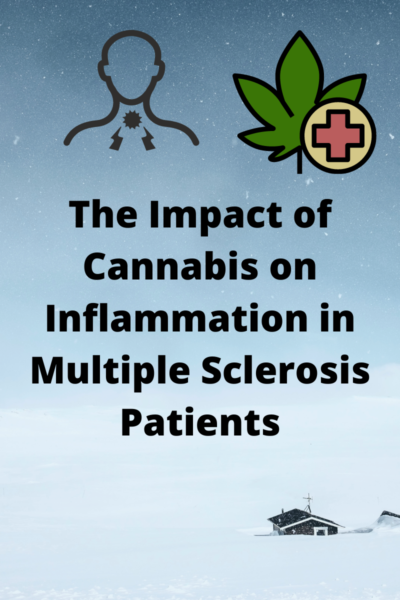
Research on the effects of cannabis and multiple sclerosis (MS) continues to reveal positive effects of cannabis on patients with this condition. Previous research showing benefit was discussed in this article. A new study published in February 2021 specifically examined how inflammatory and anti-inflammatory cytokines are modulated in MS depending on the use of cannabis. Cytokines are signaling proteins used by cells to communicate with each other. Some can stimulate inflammation while others can suppress it. In MS, excessive inflammation appears to contribute to development of the disease, so finding ways to tamp down inflammation may act as a treatment.
150 MS patients were examined, 28 of whom used cannabis and 122 who did not. 150 individuals without MS were also included in the study to serve as controls. Both pro-inflammatory and anti-inflammatory cytokines were measured in the various groups. Demonstrating a dual effect on inflammation, the MS/cannabis group had lower levels of pro-inflammatory cytokines than the MS group, while also showing higher levels of anti-inflammatory cytokines. Over half, 53.6%, of the participants in the MS/cannabis group stated that cannabis improved their symptoms.
Given the relatively high response rate, it is quite possible that better results could be obtained with continued experimentation with different doses of cannabinoids. Many patients only smoke or vaporize THC-rich cannabis or use low doses of CBD. It is quite possible that higher doses of CBD, which may produce stronger anti-inflammatory effects, could work even better. There are also growing reports of THCA, CBDA, and CBG acting as strong anti-inflammatory agents, and in some cases these compounds may exceed the potential of THC and CBD. It is paramount that more studies are conducted to analyze the potential of these strategies.
